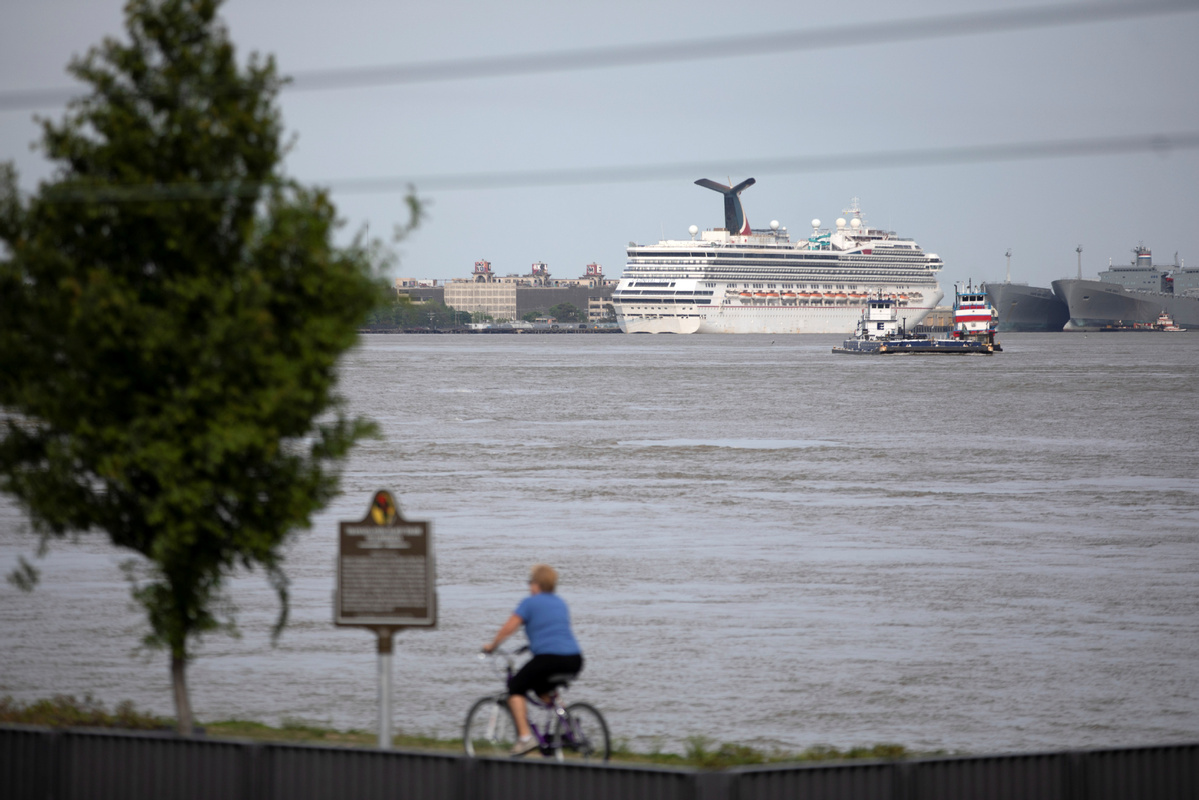Cruise lines extend ban on sailing from US ports


The cruise line industry has voluntarily extended a government ban on sailing from US ports until Sept 15.
Major cruise lines, including Carnival, Norwegian, and Royal Caribbean, extended the suspension. Previously, the companies planned to resume operations after July 24, when a ban imposed by the Centers for Disease Control and Prevention (CDC) expires.
"Although we are confident that future cruises will be healthy and safe and will fully reflect the latest protective measures, we also feel that it is appropriate to err on the side of caution to help ensure the best interests of passengers and crewmembers," Cruise Lines International Association (CLIA), a Washington-based trade organization, said in a statement.
"The additional time will allow us to consult with the CDC on measures that will be appropriate for the eventual resumption of cruise operations."
The "no-sail" order is necessary, the CDC believes, because passengers on cruise ships tend to be older and therefore are at greater risk for severe illnesses stemming from a coronavirus infection.
"Moreover, the population density on cruise ships tends to be higher than most urban settings, and even when populations are reduced, we still observe ongoing spread of COVID-19 illness due to the congregated setting and greater chance of closer physical contact," the CDC said in a statement.
In February, the cruise ship Diamond Princess was quarantined in Yokohama, Japan, after a man who disembarked in Hong Kong tested positive for the coronavirus.
About 400 of the 3,700 passengers on board were Americans. They were flown to a US Air Force base in California and another base in Texas. All were quarantined for two weeks.
Canada banned cruises in its waters through Oct 31. That is likely to limit cruises along the New England coast because the ships can no longer dock at Halifax, Nova Scotia, reducing the range of the cruise.
CLIA said the cruise industry added $52.7 billion to the US economy in 2018, up 10 percent from 2016. That included $23.96 billion in direct purchases made by passengers, crew and cruise lines.
The top five states benefiting from cruise industry tourism are Florida, California, Texas, New York and Alaska. Most travelers embark from one of the first four states; Alaska, a huge state geographically with a small population, benefits from a steady influx of visitors, the trade group said.
Airlines, hotels and restaurants have been hit hard during the pandemic as a government-imposed shutdown of the economy kept people at home to avoid spreading the virus. Layoffs in the travel and hospitality sectors followed the shutdown, driving US unemployment to new highs.
Following the shutdowns caused by the COVID-19 pandemic in mid-March, shares of the three major cruise line operators dropped between 55 percent and 70 percent.
But in the last month, cruise line stocks rebounded as investors bet on a strong reopening of the economy. Carnival's shares rose about 28 percent, Royal Caribbean gained about 36 percent, and Norwegian Cruise Line jumped about 50 percent.
Shares have been clipped at least 10 percent in recent trading amid fear of new coronavirus infections around the nation, including California, Florida and Texas.
Carnival is the world's largest cruise line operator. The company, organized in 1972 and based in Miami, now operates about 100 ships under the brands Princess Cruises, Holland America Line and Cunard Line. It sails to ports worldwide, including Mexico, Alaska, the Caribbean and the South Pacific.
Carnival's largest ship can accommodate 3,900 people. The company employs about 120,000 worldwide.
In the second quarter of 2020, Carnival said revenue fell to $700 million from $4.8 billion for the same period a year ago after it suspended operations during the coronavirus pandemic. The company reported a loss of $4.4 billion.
In its quarterly earnings statement filed with the US Securities and Exchange Commission, Carnival said it had enough cash on hand and available credit to remain in business into 2021 without resuming cruises.
Future bookings remain strong, and if the coronavirus abates, or if a vaccine is developed, the industry hopes to rebound next year.
For the six weeks ending May 31, Carnival said about two-thirds of reservations for 2021 were new bookings. The remaining third were customers applying payments for cruises canceled this year to a voyage next year. Deposits totaled $2.9 billion, including $475 million for cruises during the second half of this year.































